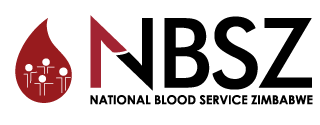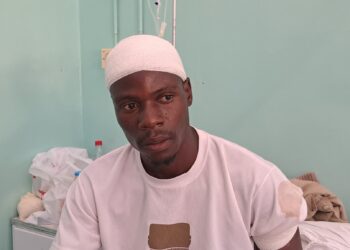THE National Bl00d Services of Zimbabwe (NBSZ) has launched a campaign to collect over 11 000 units of bl00d from the Midlands province this year to ensure adequate stocks in case of emergency, especially during public holidays.
One unit of bl00d is 525ml, which is roughly the equivalent of one pint. In Zimbabwe, bl00d is collected, processed and administered by NBSZ.
In an interview yesterday, NBSZ bl00d donor co-ordinator for Midlands Province, Mr Michael Chakoma, said efforts were underway to collect 11 008 units of bl00d from donors in the province.
“Nationally NBSZ is looking at collecting 83 000 units of bl00d for the year 2024 and Midlands is looking at collecting 11 008 units of bl00d to ensure there is adequate stock in the country at any given time, especially during public holidays,” he said.
Mr Chakoma said the daily bl00d consumption for Gweru alone was between 28 to 40 units of bl00d.
“This also depends on the demand for bl00d at hospitals and as a branch we are doing well because when they need it, we are ready to supply,” he said.
Mr Chakoma said while bl00d is free for public and mission hospitals, a certain fee is charged for materials or consumables used in the collection, management and delivery of the bl00d to those in need.
He said there was a positive shift in response to bl00d donation as they now have a pool of active bl00d donors.
Learners account for almost 70 percent of all bl00d donations, while youths under 25 account for 18 percent and the rest are adults.
Mr Chakoma, however, said they at times face the shortage of bl00d ‘O’ group type, which he said is always on demand.
“We have so much demand of this bl00D group across the province, which is needed by hospitals because it’s a universal bl00d type,” he said.
On average, the World Health Organisation (WHO) estimates that close to 800 000 people succumb to both direct and indirect effects of anaemia yearly in the world.
Epidemiological studies have shown that close to two billion people will at one time be troubled by anaemia, a condition where there are few healthy red bl00d cells or haemoglobin.
Mr Chakoma said haemoglobin is a protein that carries oxygen to the tissues of bodies at the same time giving the red pigments to the bl00d.
“Bl00d levels may go down due to a number of factors, which include failure of the body to manufacture healthy red cells due to shortage of vital vitamins and ions in the bl00d. Included here are folic acid, iron, vitamin B12 and vitamin C,” he said.
Mr Chakoma said anaemia can arise from sudden loss of bl00d from such conditions as haemorrhage as a result of injuries, road traffic accidents, bleeding disorders while some other patients can haemolyse their red cells from such conditions as malaria, cancer, liver diseases etcetera.
“When one’s haemoglobin level goes below six, it is imperative to consider bl00d transfusion as that can be a very dangerous situation that can come with multiple complications, which can include severe incapacitating fatigue, heart failure or d3ath,” he said.
“This calls for the availability of bl00d and bl00d products to be ready for transfusion as failure to access such golden products can be very fatal.”
SOURCE ; ZIMBABWE SITUATION










